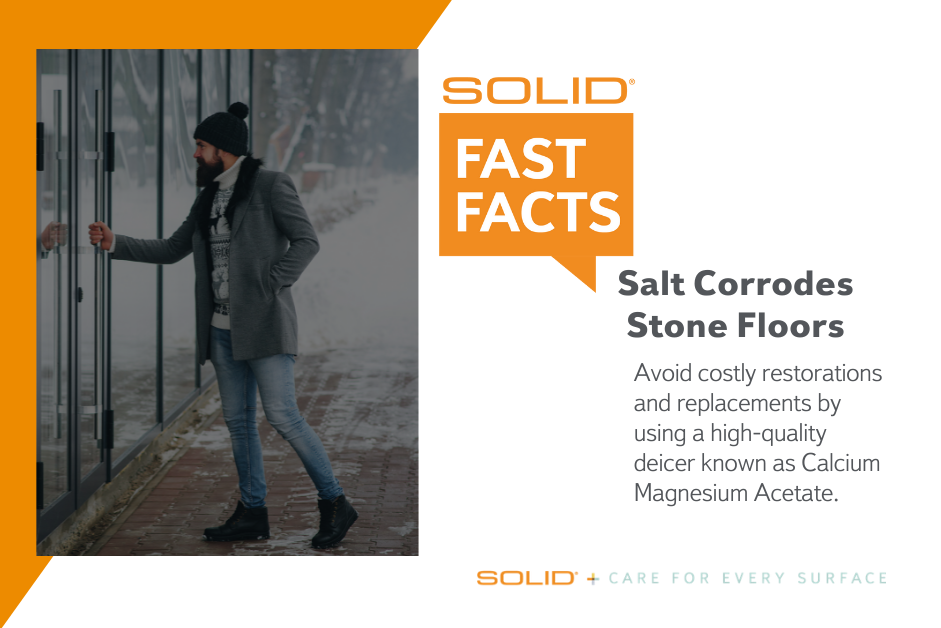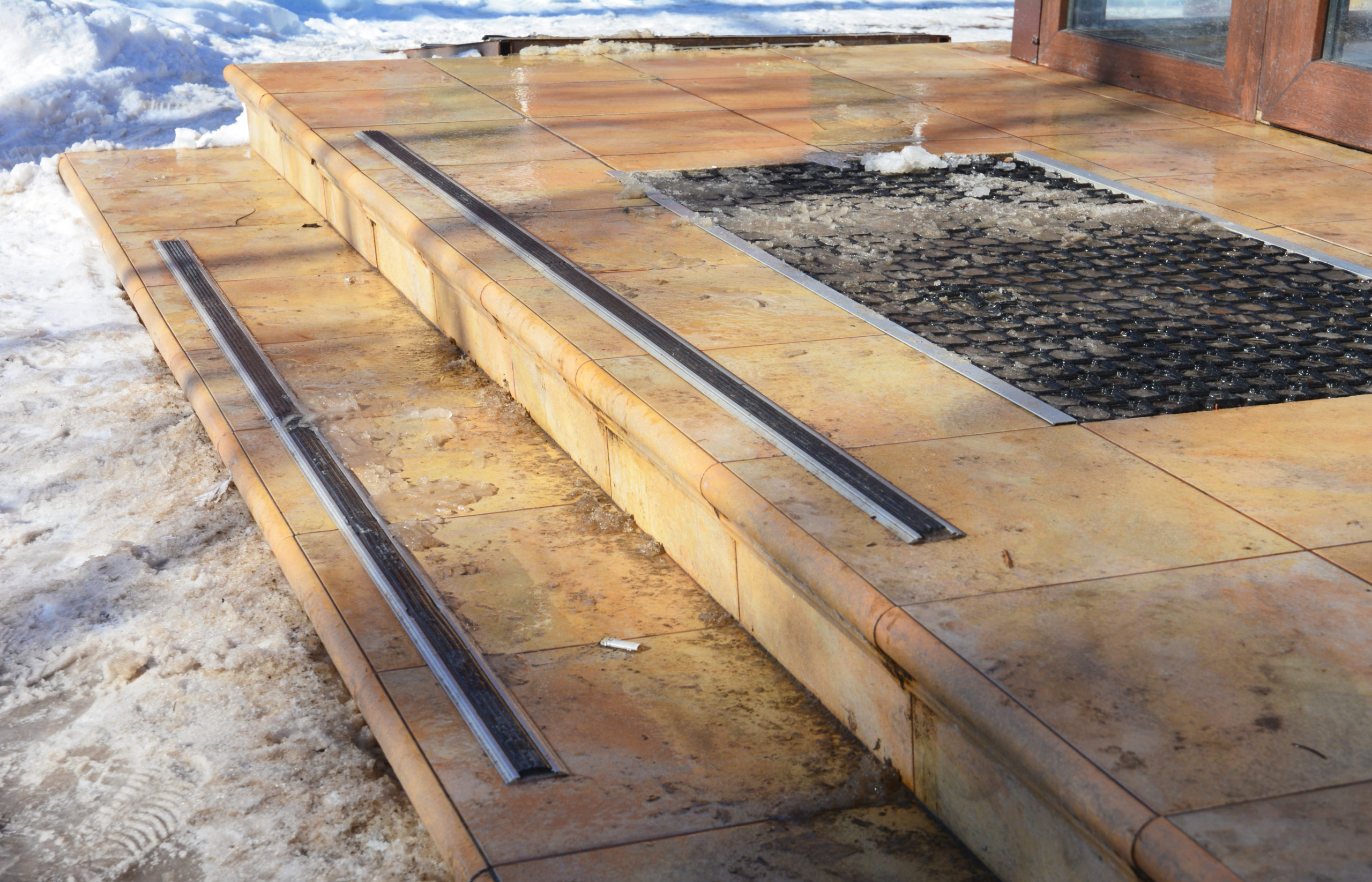Hard Surface Care
scroll

Who doesn’t love natural stone flooring – in the summer that is. But winter is another story. Natural stones like marble, travertine, and limestone all need extra care to survive the winter season without suffering severe damage. Did you know that preparing natural stone flooring for winter weather starts actually outside of a facility’s doors? First, it’s important to know the difference between common deicers and salts used for snow and ice – many of which can damage the stone. Avoid costly restorations and/or replacements by using a high-quality deicer known as Calcium Magnesium Acetate. This alternative salt is less damaging to stone, terrazzo, and masonry surfaces and is also more environmentally friendly, non-corrosive, and biodegradable. With proper stone maintenance, we’ll show you why you can love natural stone flooring all year round.
Ice Melt and Natural Stone
In addition to using the proper ice melt chemistry, it is important to properly and proactively maintain flooring surfaces during winter weather events.
“Salt is very harmful to natural stone floors,” says Phil Calabritto, SOLID’s Senior Consultant, Technical Services. “A stone floor finish is designed to give surfaces a shine. Scratches from salt crystals can cause the finish to dull and be damaged. If it is ignored for too long, the salt corrodes and eats away at the finish, leaving the floor vulnerable to other problems.”
The cleaning specifications below can help maintenance staff properly clean stone flooring.
- Per the National Stone Institute, “the first step in proper stone care and maintenance is to understand your stone’s geological classification and composition. This information will help to identify what cleaning products to use and how best to care for your natural stone.”
- At least 25 feet of walk-on entrance mats should be placed prior to a winter weather event.
- Sweep all visible ice melt granules before performing any type of cleaning.
- Clean floors with an automatic scrubber and a stone-specific cleaner with white pads attached, followed by a finishing damp mopping with a clean mop head.
- If an automatic scrubber is not available, heavily wet mop floors and wet dry vacuum afterwards.
- Use large amounts of clean, plain water.
- Never use this mop head on clean areas of the floor – it will only spread the ice melt.
- If the cleaning methods above are unable to be performed, wet mopping is not as effective as wet dry vacuum methods, but much better than doing nothing at all. Water must be changed frequently or it will spread the ice melt residue over a larger area.
- Removal of snow and ice from the entrance area is preferable. If ice is not removed, daily heavy cleaning will be necessary until it is removed.
- After the need for ice melt is gone, clean the exterior entrance to remove as much ice melt residue as possible. Water and rain will keep the residue on stone floors and will require heavy cleaning.
- Entrance rugs should be removed and cleaned daily when possible. Rugs hold ice melt and can spread residue for weeks.
- When all excess ice melt is removed, use a clean pad, slow-speed machine, and a wet dry vacuum. It is important all ice melt has been removed first and only white residue remains. An auto-scrubber will work, but the cleaning solution should be put down first, using large amounts of water. Clean with the vacuum off, then vacuum the water and cleaner. One pass generally will not be enough. Change pads often.
- Wet clean all exterior walkways as soon as the ice is melted to avoid ice melt residue from being tracked onto floors, and to keep floors from becoming slippery and damaged.
- Dispose of old mop heads, dirty pads, etc. Don’t use it in other areas, ever.
- Call your SOLID surface care Solutionist with any questions or problems and arrange post-weather cleaning of your stone floors.

Stone is one of the most popular surfaces found in facilities. There are key stone maintenance fundamentals and best practices every facility manager should know when selecting and caring for these materials. Having an expert surface care consultant provide a long-term maintenance strategy and cost analysis is an important step.
Do you have more stone maintenance questions? Let the specialists at SOLID provide a site assessment and offer recommendations for existing floors that may involve restoration as needed and an ongoing cleaning and maintenance plan.
About SOLID:
SOLID Surface Care, Inc., is a unified team of surface care experts who deliver the highest level of care for all hard and soft surfaces while providing a world-class client experience. With SOLID, your surfaces are protected, your spaces are kept clean and healthy, and your expectations are exceeded. From carpet to concrete to metal and wood, we care for the most precious surfaces in the world – Yours.
SOLID has been a member of the Natural Stone Institute since 1985 and has been working with stone for three generations.
For a free assessment, please visit our online contact form.